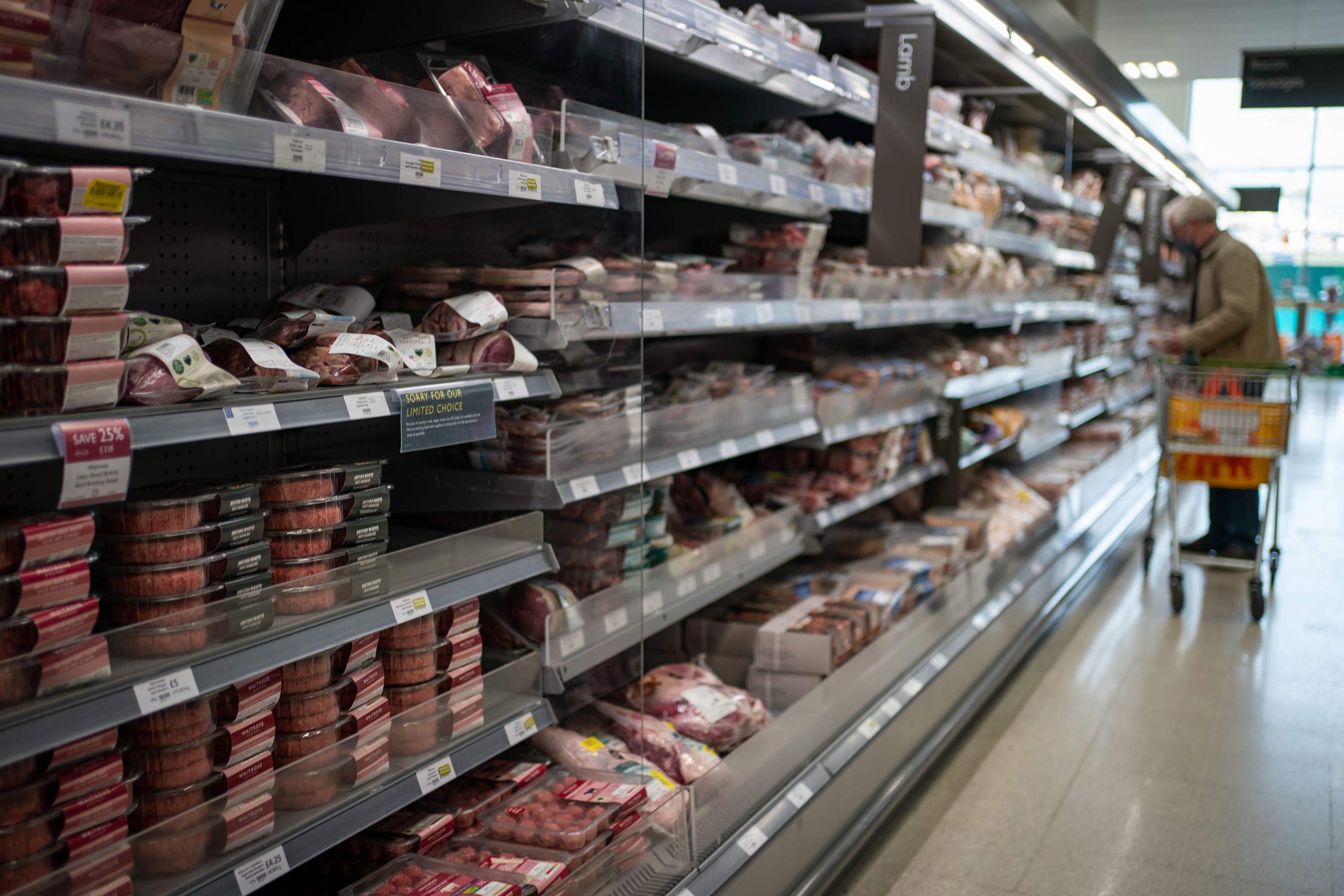Grocery price inflation reaches record 17.1%
The figure adds a potential £811 to annual household shopping bills, according to analysts Kantar.

Your support helps us to tell the story
From reproductive rights to climate change to Big Tech, The Independent is on the ground when the story is developing. Whether it's investigating the financials of Elon Musk's pro-Trump PAC or producing our latest documentary, 'The A Word', which shines a light on the American women fighting for reproductive rights, we know how important it is to parse out the facts from the messaging.
At such a critical moment in US history, we need reporters on the ground. Your donation allows us to keep sending journalists to speak to both sides of the story.
The Independent is trusted by Americans across the entire political spectrum. And unlike many other quality news outlets, we choose not to lock Americans out of our reporting and analysis with paywalls. We believe quality journalism should be available to everyone, paid for by those who can afford it.
Your support makes all the difference.Grocery price inflation has reached a record 17.1% to add a potential £811 to annual household shopping bills, figures show.
This month marks a full year since monthly grocery inflation rose beyond 4% as consumers named it their second most important issue behind energy costs and two thirds said they were concerned about food and drink prices, analysts Kantar said.
However cost-of-living pressures failed to dent enthusiasm for Valentine’s Day celebrations this year, with sales of steak up by a quarter in the seven days to February 14 compared to the previous week, sparkling wine sales doubling and shoppers spending an extra £5 million on boxed chocolates.
February also saw sales of cold treatments rising by 82%, cough liquids up 78% and cough lozenges 70% higher.
Kantar said it was closely following the impact of vegetable and fruit shortages on sales in the coming weeks, although it noted that the pack limits introduced by some supermarkets were unlikely to affect consumers as they usually bought fresh items in smaller quantities.
Fraser McKevitt, head of retail and consumer insight at Kantar, said: “Shoppers have been facing sustained price rises for some time now and this February marks a full year since monthly grocery inflation climbed above 4%. This is having a big impact on people’s lives.
“Our latest research shows that grocery price inflation is the second most important financial issue for the public behind energy costs, with two thirds of people concerned by food and drink prices, above public sector strikes and climate change.
“One quarter say they’re struggling financially, versus one in five this time last year. The numbers speak for themselves.”
Aldi’s market share reached a record 9.4% and remains the fastest growing grocer, with sales up by 26.7%.
It was closely followed by Lidl, which increased sales by 25.4% and achieved a market share of 7.1%.
Frozen food specialist Iceland increased its market share to 2.4%, up from 2.3% last year, as spending through its tills increased by 10.8%.